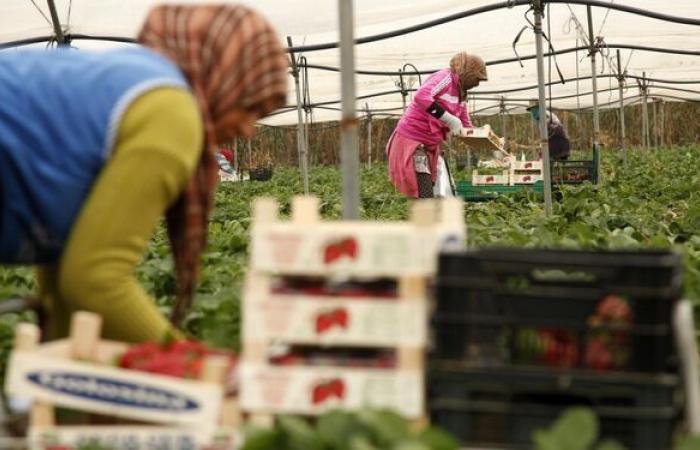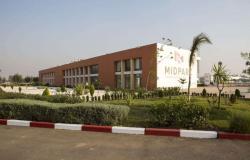Beyond the plastic greenhouses of strawberries and raspberries, a new wind blows on Huelva. For the first time, Moroccan seasonal workers founded their own union, shaking up a migratory system as lucrative as it is unbalanced. Their precarious working conditions are no longer a unsaid. They become a collective fight, carried by those that we never heard.
Long reduced to an invisible workforce, subject to the frantic rates of Spanish agricultural harvests, the Moroccan workers from Huelva have decided to no longer bend the spine. On May 1, universal symbol of workers’ struggles, they announced the creation of their own union. A first in the history of seasonal migratory work between Morocco and Spain.
Behind this unprecedented initiative is the Jornaleras collective of Huelva in Lucha – literally, “the daily of Huelva in struggle” – and the Andalusian Syndicate SOA (Sandicato Obrero Andaluz). But the singularity of the project is mainly due to its anchoring: these are not traditional union structures that have orchestrated this awakening, but the workers themselves. They are the ones who, after years of abuse, linguistic marginalization and social isolation, took the initiative of a structured, autonomous and demanding self-organization.
Read also: Moroccans from Huelva: a new concept is now possible
The context of this social alarm clock is part of the GECCO program (collective management of original contracts), a circular migration system by which several thousand Moroccan women, mainly from rural backgrounds, are recruited each year for agricultural campaigns. In theory, this system guarantees them a contract, a salary and an organized return. In reality, it has often served as a screen for opaque practices, oscillating between non-compliance with contractual commitments, over-exploitation and unworthy living conditions.
In recent years, journalistic surveys, NGO reports and anonymous testimonies have revealed backwards: overcrowded housing, unpaid hours, abusive dismissals, and sometimes even harassment. Despite this, the reforms were long overdue, and the voice of the concerned has never found a sustainable institutional relay. Until today.
The birth of this union changes the situation. Far from being symbolic, it is already in action. Barely constituted, he paid a first complaint for abusive dismissal, not in Spain, but in Morocco, where the worker had been dismissed without clear reason. The gesture is strong: he affirms that the rights do not go out with the return to the country, and that the links between the two banks must now be rebalanced by cross -border justice mechanisms. The new union ensures legal support for this approach, sketching the contours of sustainable and transnational solidarity.
The initiative is part of a wider sequence of ramp -up of the demands brought by agricultural workers. The fact that this impulse comes from the inside this time, of the first concerned, gives the approach an unprecedented political and social scope. As the militants of the collective explain, it is a question of leaving precariousness from above, by imposing on employers an equal negotiation, where workers are no longer simple disposable human resources but organized and legitimate interlocutors.
This union will not alone resolve the multiple accumulated injustices. But he cracks a model based on silence and dependence. It installs a new dynamic: that of an assumed balance of power, a collective speaking, of a found dignity. And above all, he reminds Spain and Morocco that the question of seasonal work can no longer be dealt with as a simple exchange of labor, but as a leading social, political and human issue.








